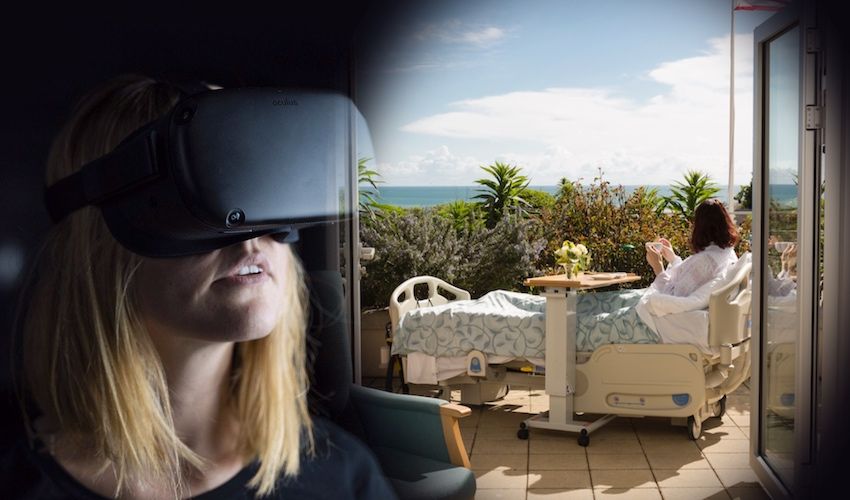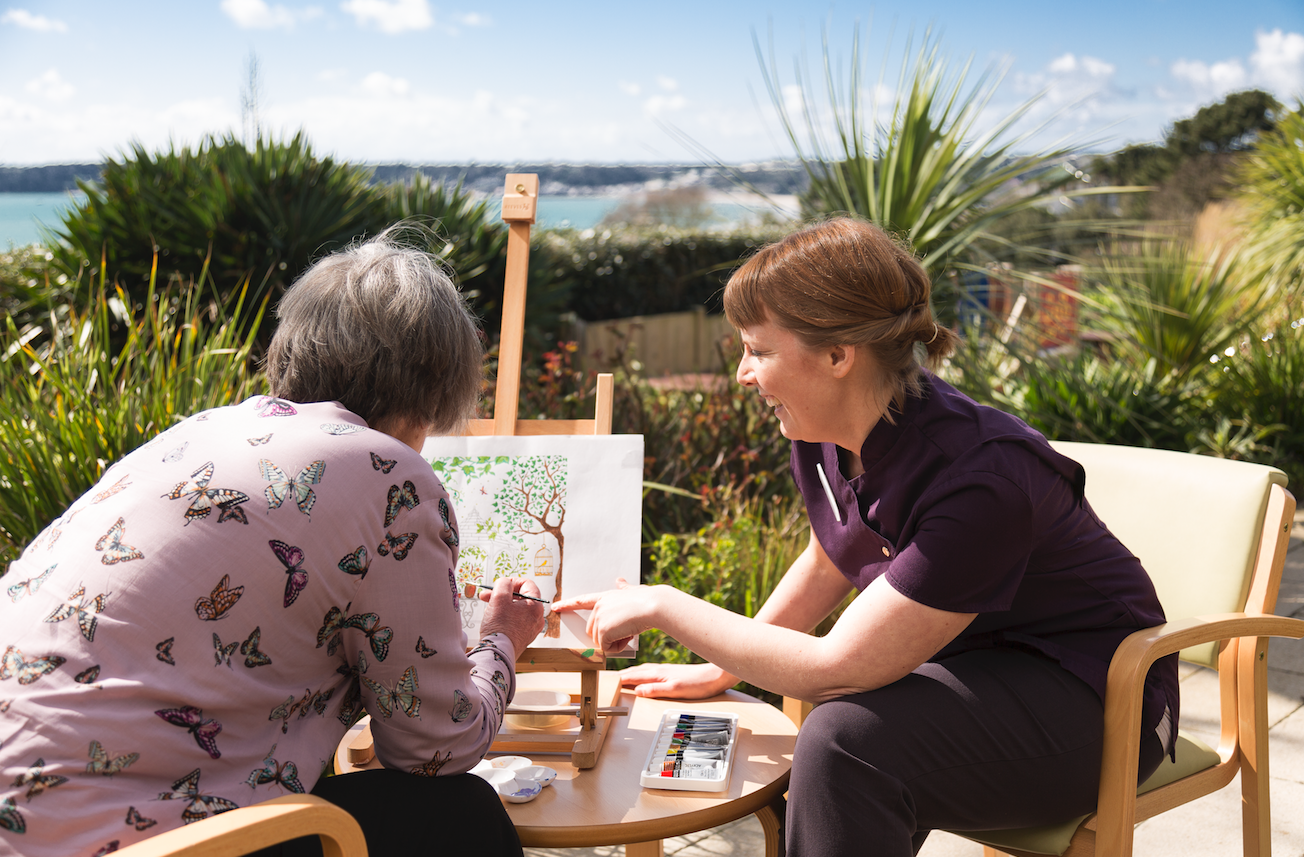


A former manager from Jersey's Intensive Care Unit is hoping to prove virtual reality can help reduce stress and anxiety levels experienced by patients undergoing end of life care.
Geoff Benning, Training Coordinator at Jersey Hospice Care, has launched a research project into the effects of virtual reality as part of his Masters’ dissertation for the University of Chester.
A former night nurse practitioner and Manager of the hospital's Intensive Care Unit (ICU), Geoff joined the Jersey Hospice team 18 months ago to pursue his interest in education.
But his research ties in with another one of his interests - technology and how it can be used to make a difference to patients’ lives.
The idea for his research came to Geoff as he was discussing what entertainment he and his colleagues could offer to patients - aside from TV and current therapies - that taps into modern technology.
“The opportunities for virtual reality are endless,” Geoff said. “You can send someone down a river or in outer space. With 360-degree cameras, you can take them to a family wedding, to a football match or to see a newborn baby.
“They can go and visit places again; they can do the things they have always wanted to do and never managed to do. It has huge possibilities.”
But Geoff soon discovered that, in addition to its entertainment possibilities, VR also has a therapeutic potential.
“I started thinking, rather than being a piece of entertainment, what else can it do?” Geoff said. “There has been a lot of work done with VR around pain and it showed a reduction in pain and in the use of painkillers.”

Pictured: Geoff has always been interested in technology and how it can be used to make a difference to patients’ lives.
Geoff is hoping to show immersive relaxation programmes using VR can help reduce patients’ anxiety and stress levels.
To do so, he will start his study next January using a headset loaned by Dr Austin Gibbs of the Allan Lab with whom he is working closely.
He will first ask participants to answer the Hospital Anxiety and Depression Scale (HADS) questionnaire. He will then play a relaxation programme for about 15 minutes, during which he will measure physiological signs through a Heart Key monitoring device.
At the end of the programme, he will ask participants to answer the questionnaire again.
“I’m hoping the data will prove my hypothesis that virtual reality can reduce the stress levels and anxiety experienced by patients in palliative and end of life care.”

Pictured: Geoff is hoping to "go where no Hospice Care setting has gone before!”
Jersey Hospice Care, which is supporting Geoff’s Masters degree, has given him permission to carry out the study with any patients or service users who agree to take part.
If the study is successful, Geoff says it will not only be a stepping stone for the charity, putting it on the map in terms of innovation in patient services, but it could give patients access to new possibilities through VR headsets.
Writing in a recent blog, Geoff explained: “Technology is very much a part of our lives now and is becoming more affordable.
“I’m very excited about the potential benefits such equipment could provide for patients, their families, and staff. But we need to know more first.
“Therefore, it is my intention to continue the exploration into the world of VR provision… and, hopefully, boldly go where no Hospice Care setting has gone before!”
Comments
Comments on this story express the views of the commentator only, not Bailiwick Publishing. We are unable to guarantee the accuracy of any of those comments.